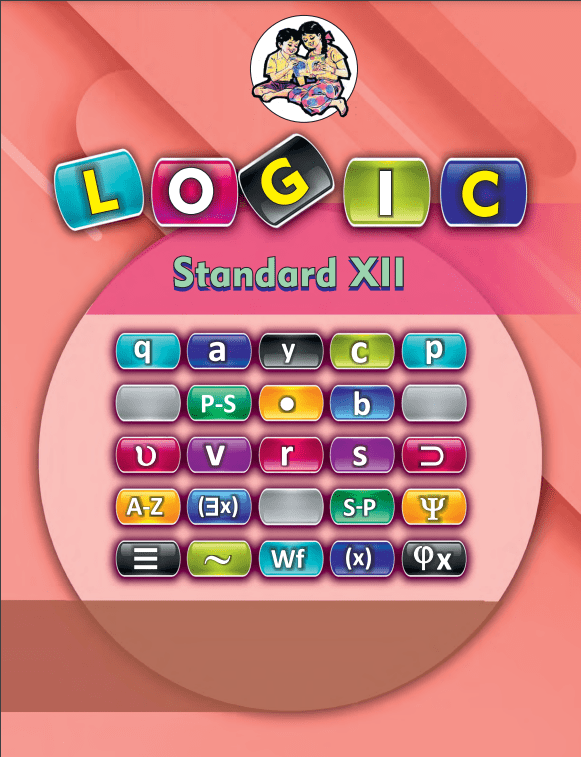Logic Standard Twelve XII
CHAPTERS :
1. Decision Procedure
2. Deductive Proof
3. Predicate Logic
4. Traditional Logic
5. Syllogism
6. Grounds of Induction
7. Hypothesis
1. Decision Procedure
• To learn the method of Shorter Truth table.
• To develop the ability to apply the method of shorter truth table as a test of tautology.
2. Deductive Proof
• To learn the method of Conditional Proof.
• To learn the method of Indirect Proof.
• To develop the ability to apply the method of Conditional Proof and Indirect Proof to prove the validity of the arguments
3. Predicate Logic
• To understand the need of Predicate Logic.
• To learn the different types of non-compound propositions.
• To learn to symbolize Singular and General propositions.
• To understand the concept of Propositional function.
• To learn methods of deriving propositions from propositional function.
• To learn the rules and method of Quantificational Deduction.
• To develop the ability to apply the method of Quantificational deduction to prove the validity of arguments.
4. Traditional Logic
• To understand the nature and classification of propositions.
• To learn the distribution of terms in A, E, I, O propositions.
• To learn the types of Inferences – Mediate and Immediate.
• To learn the types of Mediate Inference and Immediate Inference.
• To learn the Opposition of propositions and the develop the ability to apply them.
• To learn and apply the Rule of Conversion and the Rule of Obversion.
5. Categorical Syllogism
• To understand the Nature and structure of Categorical Syllogism.
• To learn figures of Categorical Syllogism.
• To learn the rules of Categorical Syllogism and the fallacies.
• To learn in brief about Indian logic and its comparison with categorical syllogism.
6. Grounds of Induction
• To understand the problem of Induction.
• To understand the grounds of Induction – Material and Formal.
• To understand the method of Observation, its Characteristics and Fallacies.
• To understand the Conditions of good observation.
• To understand the method of Experiment, its Characteristics and Limitations.
7. Hypothesis
• To define and understand the Characteristics of Hypothesis.
• To understand the Origin of Hypothesis.
• To understand the Conditions of Good Hypothesis.
• To understand the Verification of Hypothesis
Additional Information
| BOARD | Maharashtra State Board |
|---|---|
| STREAM | Science |
| PUBLISHER | Vivek Uttam Gosavi Controller |
| YEAR | 2020 |
| ED | First |
| PAGES | 96 |
| SUBJECT | Logic Standard Twelve Science |
| LANGUAGE | English |


Reviews
There are no reviews yet.